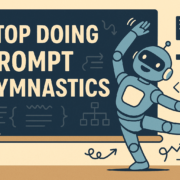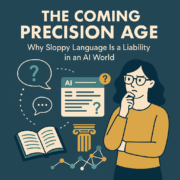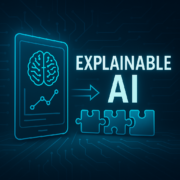The Temptation to Over-Answer
Let’s be real. Most users expect AI to respond with confidence.
And models like GPT are really good at faking it.
You ask for a stat? It gives you a number.
Ask for a quote? It makes one up, formatted and everything.
It looks right—even when it isn’t.
In one case, I was building an AI assistant for a hiring system.
It had a scoring rubric, candidate documents, and a clear goal.
But even with all that, when the AI didn’t find an answer—it guessed.
It tried to “fill in” what it thought I wanted.
That’s when it hit me:
If you don’t explicitly allow uncertainty, the model will default to invention.
Boundaries Make Better Agents
After that, I started building something else into every agent I created:
boundaries.
Clear ones.
Not just “Answer this question,” but:
“Only use the provided material.”
“If the information is missing, say so.”
“Never guess—flag unclear responses for human review.”
“Don’t cite anything that isn’t explicitly stated.”
And you know what?
The quality of responses actually went up.
Not because the AI knew more—
but because it finally had permission to be honest.
Real-World Wins from “I Don’t Know”
When I deployed an AI receptionist for a service business, I added a fallback prompt:
“I’m not sure about that, but I can take your name and have someone follow up.”
That line alone avoided dozens of bad customer interactions.
People didn’t mind that the AI didn’t know.
They appreciated that it didn’t pretend to.
In another project, I was building an AI screener for evaluating job applicants.
By adding a rule that said “Do not assign a score if the requirement is unclear,”
I stopped the model from over-crediting vague claims—and avoided hiring errors.
Sometimes the power of AI isn’t in how fast it responds—
but in how gracefully it can defer.
Teach the AI When Not to Speak
We’ve gotten used to thinking AI should behave like the world’s smartest intern—eager, fast, endlessly informed.
But good agents?
They’re more like great teammates.
They know when to step back.
They know when to flag something instead of guessing.
They protect the integrity of your system—even if that means saying:
“I’m not sure. Let me get someone.”
Final Thought
I used to think an AI saying “I don’t know” was a failure.
Now I see it as a design win.
Because in a world full of noise, trust comes from restraint—
not just from answers.
And the agents I build today?
They don’t just know what to say.
They know when to stop talking.









Leave a Reply
Want to join the discussion?Feel free to contribute!